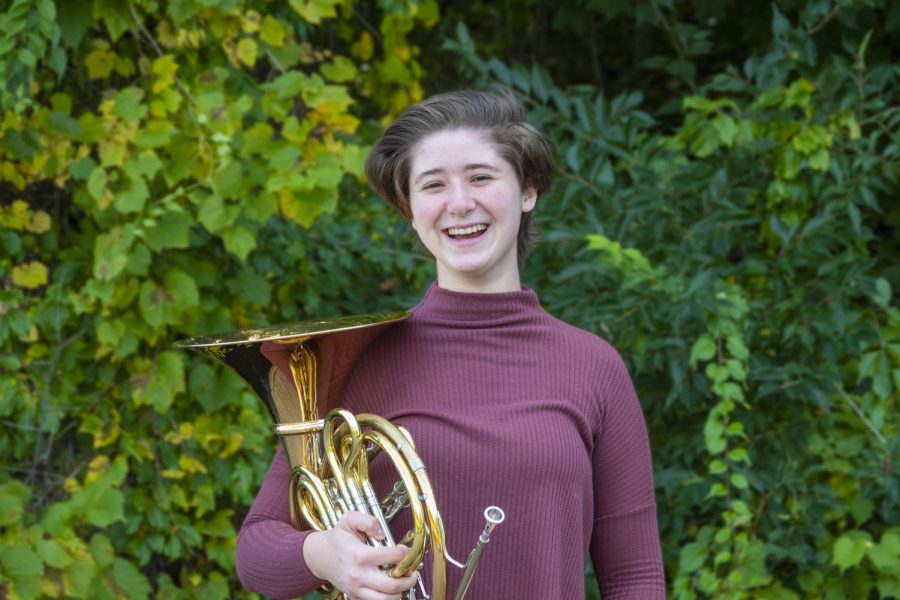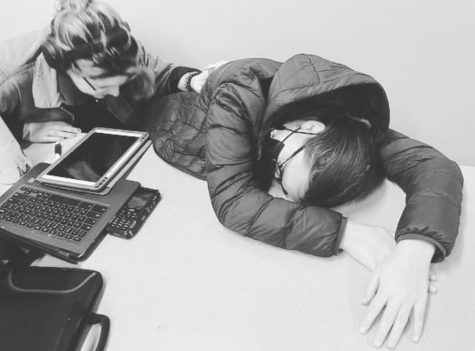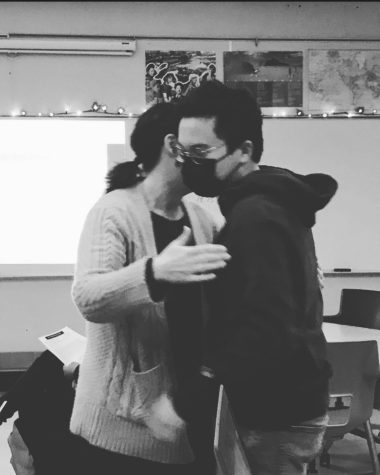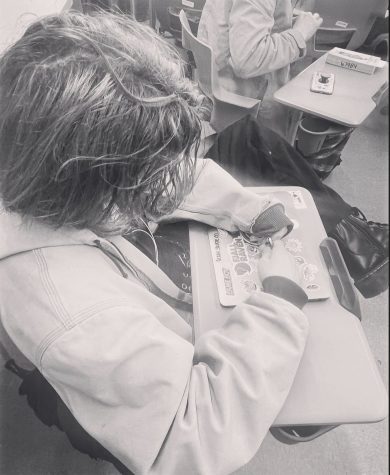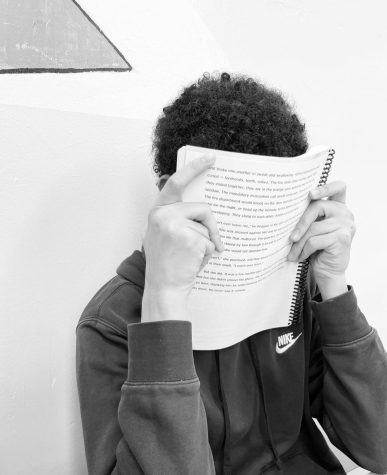Women in Jazz – Abby Kohn
For Pioneer High School (PHS) senior Abby Kohn, music has always been an unavoidable, crucial part of her life. Before she began playing the French horn, Kohn would interact with music by singing and though she didn’t understand the music she was surrounded by, she felt inexplicably drawn to it. Even when she has tried to diminish the role of music in her life to focus on other things, she has found herself unable to do so.
“[Music] definitely provides something for my mind that I don’t feel like I can really get anywhere else,” Kohn said. “Just the combination of things I have to think about, along with things that have to be automatic, along with feeling that I have to bring out. I don’t really have anything else like that in my life.”
Kohn began practicing jazz during the spring COVID-19 outbreak. This year, she is split enrolling from PHS to join the jazz program at CHS, where she is in Jazz 4.
Coming from an orchestral background, Kohn has created many connections with other women musicians; she says there are a lot of female horn players in Ann Arbor. But her experience in jazz has been dramatically different, considering she is more likely to be in a male-dominated space.
When she is playing with men, Kohn says that they often try to monopolize the group, attempting to usurp leadership positions Kohn has. In these moments, she feels pushed aside by her male peers and her normally relaxed demeanor gives way to anxiety.
“I have to change my behavior when I’m playing with men,” Kohn said. “I get very perfectionistic about how I’m playing and how I’m acting. I feel more stressed out and also more like I have to prove myself a little bit. I have to compensate for how [men] are acting.”
It can be difficult to not feel like an imposter when some things about playing and teaching were designed for men. Music students are taught via teachers and textbooks that breathing should be focused in the front of the chest. According to Kohn, the front of the chest is the part of the body that most expands for men; for women, breathing from the sides of the chest is more beneficial.
Another struggle for Kohn is the lack of female representation — not only in the jazz world in general, but in the resources she is given by instructors.
“When I listen to music — like that packet that Jack [the CHS jazz teacher] gave all of us with the lists of different musicians, there were like two women in the entire thing,” Kohn said. “I felt like I had to go back and research female musicians of each instrument group. The same thing, honestly, goes with classical: all the big names are always men, which is really frustrating because it’s difficult to find inspiration sometimes. But if you dig deep enough, you can.”
Because of all of these environmental stressors, Kohn sometimes struggles with imposter syndrome, feeling she does not deserve the merits she has achieved. When she has these thoughts, she tries to combat them with positive self-affirmations, such as what she likes about the music she has played, or what she likes about her approach to music.
This fall semester, Kohn has been applying to music schools: Curtis School of Music, Juilliard, The Peabody Conservatory at Johns Hopkins, The New England Conservatory, to list a few. Music has always been important to her; that is not going to change in college, or in her career. As a seasoned female musician, she has strategies to cope with the stress of an environment built for and dominated by men, which she is certain to continue using throughout her time as a musician.
“Make connections with other women,” Kohn said. “Everyone I’ve met in the music world is so eager to share their knowledge with other people. Especially if you’re part of a community; if you’re both female, those bonds are just gonna be so special and so important to you for the rest of your musical career.”

When she's not working on the Communicator, she can be found practicing jazz, preparing for a Mock Trial competition or helping run feminist club. Some fun facts about Geneve are as follows: she was born with an extra thumb that has since been removed; she loves to sing and dance, even though she is not good at either.



